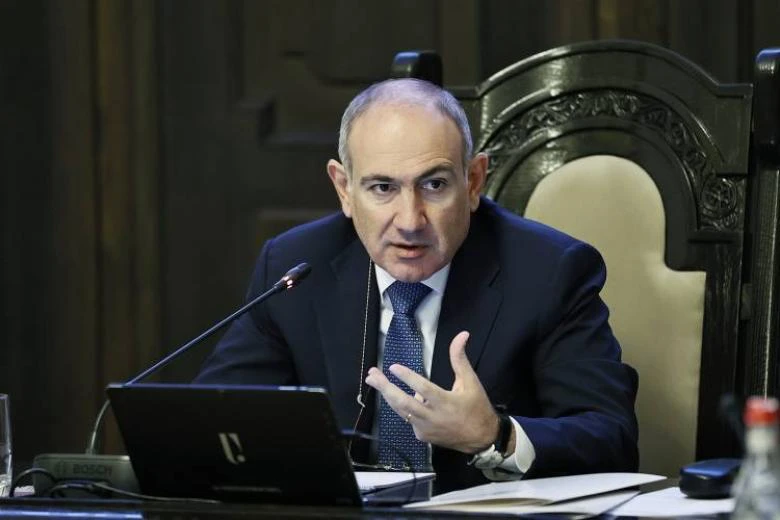Prime Minister Nikol Pashinyan posted on his Facebook page:
"Prison diary". one of the ten righteous September 19, 2009, "Yerevan-Kentron" ККХ Discussions about the role of the individual in public life ultimately come down to large-scale people.
There is nothing strange in this, because it is the large-scale individuals who make history and change the course of history. This realization, as a rule, leads to the conclusion that the ordinary person cannot be held responsible for the course of global processes.
In essence, this is exactly how historiography approaches the problem. Historians are interested in kings, princes, generals, and heroes.
Historiography, however, does not address the question of how, say, the most ordinary shoemaker's behavior, manners at work and in the family affect the course of history.
Western scientists began to guess that such an effect exists in the not-so-distant past, when the concept of the "butterfly effect" was put into circulation.
This expression became especially widespread after the publication of the famous story "And the Thunder Roared" by the fantasy writer Ray Bradbury.
The hero of the story, traveling in time, goes back several thousand years and finds himself in primeval times.
Here, he accidentally crushes and kills a butterfly, and when he returns to our times, he discovers big, epoch-making, dramatic differences. Here, Western philosophers began to talk about the fact that the most insignificant events have a direct connection with global, even cosmic processes, and storms can arise from the movement of a butterfly's wing.
If, then, modern philosophy has begun to take the flight of a butterfly so seriously, how much more seriously is the influence of the behavior of the most ordinary individual on objective reality.
Such influence, however, is incalculable and immeasurable, at least for science.
But where science is powerless or taking its first steps, the Bible comes to the rescue. In the very first part, Genesis, the Holy Bible emphasizes the direct influence of individual behavior on global processes.
And if in the case of Adam, Eve, and Cain, we are dealing with, so to speak, large-scale individuals, we encounter a completely different situation when we get to know the history of the destruction of Sodom. In this episode, here we get to know a story, the outcome of which is determined by the behavior of an ordinary person unknown to us.
When the Lord informed Abraham of his intention to destroy Sodom and Gomorrah, Abraham asked him:
"Will you destroy the righteous with the wicked, and the righteous will be subjected to the same thing as the wicked?" If there are fifty righteous in the city, will you destroy them? Will you not spare the whole city for the sake of the fifty righteous who are there?" (Genesis 18:23, 24). The Lord promises Abraham not to destroy Sodom if fifty righteous people are found there.
Abraham, however, is not satisfied with what he has achieved and turns to God again in fear. "And if the fifty righteous are reduced by five, will you again destroy the whole city because of those five?"
The Lord promised Abraham not to destroy the city if forty-five righteous were found there. Abraham, however, is not satisfied with this either and wonders if God will destroy the whole city if thirty righteous people are found there.
The Lord promises to spare the whole city if thirty righteous people are found there. Finally, the Lord promised Abraham not to destroy the city if ten righteous people were found there.
In Sodom, however, God found only one righteous man, Lot, and urged him to leave with his family of four, and then destroyed the city.
Who is responsible for the destruction of Sodom? The princes of the city, the big houses? certainly. It is they who are primarily responsible for the crimes, sins, and adultery that pervade the city.
However, the Bible, with a similar description of the history of the destruction of the city, brings to the fore the reality that in this case the reason for the destruction of the city is not the wickedness of many, but the monstrous reality that ten righteous were not found there.
The Lord would spare the city if there were ten, just ten righteous people there: ten workers, potters, gardeners. The leaders are to blame for turning the city into a den of wickedness, but the ordinary citizens are to blame for not being able to save it from destruction, because it didn't take much. just to be fair.
Notice, not innocent, not without sin, but righteous. It is hard to believe that everyone in Sodom was unjust and sinful from the beginning.
The destruction of the city came when the righteous sacrificed their righteousness for some pleasures, when they put up with injustice, when they assimilated to wickedness, when they neglected to protect their right to be righteous, when they neglected to separate themselves from injustice and wickedness.
At some point, the city was deprived of the righteous, and no one guessed about this, hoping that the righteous continue to live next to them, somewhere, in one of the nearby houses.
And so no one cared to become one of the required ten righteous. I understand all those citizens, the so-called "ordinary citizens", who claim that they are not the subject of historical responsibility, and the responsibility belongs to political, intellectual, spiritual men. it's on his shoulders.
This is an accurate position, and leaders should always feel their responsibility. But calling the leaders to account is the task of the "ordinary citizens" as a whole, that is, the people. Perhaps this is the task that should be considered justice.
In any case, every citizen, locked in his worries at home and far away, has a historical mission. a mission to become one of the ten righteous. And when injustice knocks on his door, he has to leave his house and prove his justice on the street as well.
As for the leaders, God himself will endow righteous people with righteous leaders. The unjust people will also be deprived of the grace of having just leaders."


























